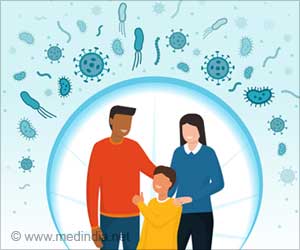Noncommunicable chronic diseases are those that are not spread from person to person and persist for at least one year, such as diabetes, heart disease, and cancer. They are the leading cause of death worldwide and represent a global health threat that predates the COVID-19 pandemic.
According to the U.S. Centers for Disease Control and Prevention, the non-communicable disease crisis kills more than 15 million Americans prematurely each year.
The COVID-19 pandemic and the chronic disease crisis create what is called a synergistic endemic, or syndemic overlapping epidemics that interact, increasing the burden of disease and the likelihood of poor outcomes.
Recent proposals for a new normal national strategy in the U.S. focus too much on the SARS-CoV-2 virus and too little on the context in which the virus’ impact is most burdensome.
“This is a major missed opportunity to address the multilevel and multifactorial factors that contribute to severe COVID-19 and COVID-19 mortality, not to mention other health conditions,” said Ma, the Beth and George Vitoux Professor of Medicine and director of Vitoux Program on Aging and Prevention at the UIC College of Medicine.
Need Of The Hour Is Proper Strategy
What we need is a comprehensive syndemic control strategy because, in truth, the pre-pandemic state of health in the U.S. was not ideal in the first place.
Nearly 95% of U.S. adults hospitalized with COVID-19 between March 2020 and March 2021 had an underlying condition. Vaccinated people with breakthrough infections were 44% to 69% more likely to suffer severe outcomes if they had a chronic disease.
Noncommunicable diseases and risk behaviors such as smoking, substance abuse, and physical inactivity conferred a higher risk for severe COVID-19, according to the CDC based on conclusive evidence.
The failure to address NCD control and prevention as a national priority is unacceptable because it contradicts compelling evidence and misses the opportunity to use a whole set of effective intervention approaches that can save lives.
The window of opportunity is fleeting, and the consequences of inaction could be devastating by allowing the continuation of high vulnerabilities for severe and inequitable outcomes of NCDs and future infectious disease pandemics.
Practical, immediately actionable steps for incorporating the prevention and control of chronic diseases into existing COVID-19 policies and infrastructure are recommended.
People Need to Gain a Sense Of Control Of Their Health
The national infrastructure mobilized for vaccine promotion and distribution could be leveraged to also disseminate proven lifestyle and behavioral health programs.
Campaigns for COVID-19 vaccination and masking could expand messaging to also promote healthy lifestyles and mental well-being.
Partnerships between medical systems and community-based organizations and efforts by public and private insurers for the COVID-19 emergency response could be expanded to include behavior change interventions in routine health care delivery and coverage.
Though we all hope the pandemic is waning, variants keep appearing and vaccinations wane as well. Thus, we need to plan now for better responses to a possible next surge as well as future pandemics.
Source: Medindia



